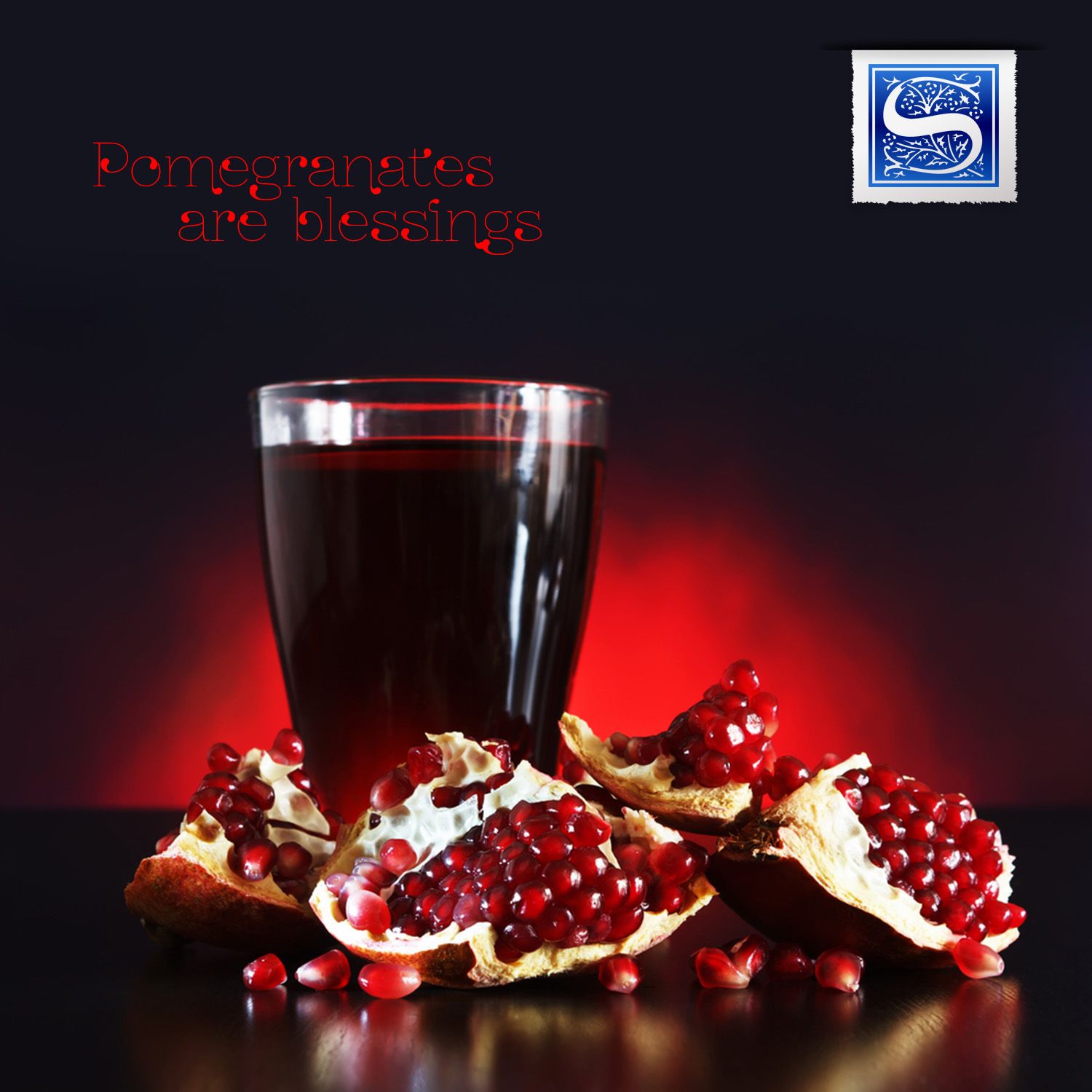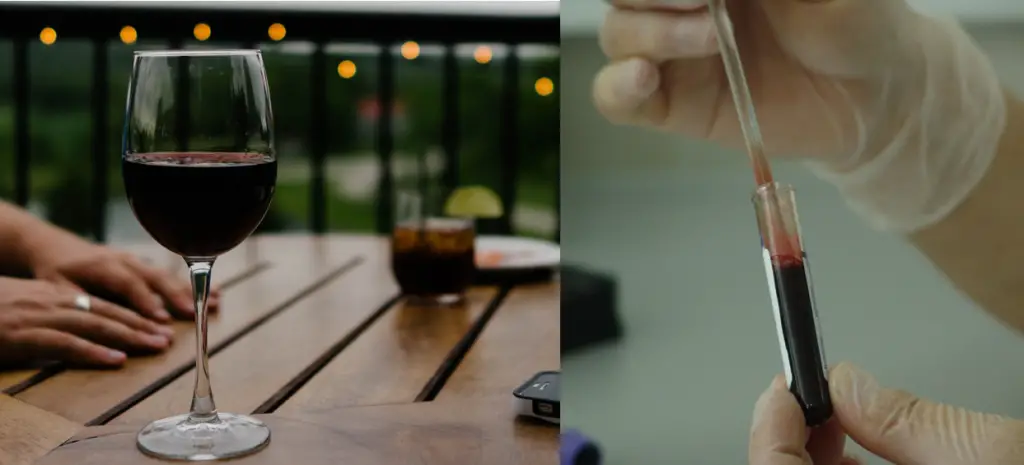How Much Red Wine Is Good For Your Heart
In order to receive the heart health benefits of red wine, the American Heart Association recommends no more than one drink a day for women and two a day for men. For reference, one drink is equal to five ounces, or 140ml of wine.
Drinking too much wine, or any type of alcohol in excess, is very bad for your heart, says Robert A. Kloner MD, PhD, Chief Science Officer of Huntington Medical Research Institutes in Pasadena, California and Professor of Medicine at the University of Southern California.
That’s because too much alcohol can cause high blood pressure and raise levels of triglycerides, which will increase your risk of heart disease, heart attack, or stroke.
Excessive drinking can also lead to heart failure a disease which makes it harder for your heart to pump blood around your body and atrial fibrillation, which is a type of arrhythmia where the heart beats quickly and irregularly.
Read more to learn about how different levels of alcohol consumption affect the heart.
What Are Blood Thinners
Blood thinners are medicines that help prevent the formation of blood clots. For people who already have blood clots, they help prevent them from growing larger and help them to be absorbed faster. When you have a blood clot, it can lead to strokes, heart attacks, impaired circulation in the lungs, and other complications resulting from the blockage.
People normally take blood thinners when they have conditions that increase their risk of blood clots developing or conditions that increase the damage a blood clot would potentially cause. This could include atrial fibrillation, a heart valve replacement, congenital heart defects and many other conditions.
Mixing Alcohol And Blood Thinners
Alcohol can interact with blood thinners like warfarin and aspirin, potentially enhancing their effects. While the interactions between blood thinners and alcohol arent fully understood, most medical professionals agree that limiting or avoiding alcohol altogether when taking anticoagulant medications is the safest option.
You May Like: Turning Glass Bottles Into Cups
What Are The Risks Of Drinking Alcohol When On My Medication
If you have chronic medical problems associated with either your liver or kidneys, it will affect the metabolism of the blood thinner. This may make your blood too thin and put you at higher risk of life-threatening bleeding complications.
Even if you have a normally functioning liver and kidneys, alcohol can limit your livers ability to metabolize other compounds. It can also limit your kidneys in excreting the broken down toxins or drugs, like your prescribed blood thinner. This can lead to the same harmful effect of excessive anticoagulation.
Cautions With Other Medicines

Some medicines and supplements can affect rivaroxaban.
This can lead to serious side effects.
Tell your doctor if you’re taking these medicines before starting rivaroxaban:
- any other anticoagulant, such as warfarin or enoxaparin
- drugs to treat fungal or bacterial infections, such as fluconazole, erythromycin or clarithromycin
- drugs to treat HIV, such as ritonavir
- drugs to treat epilepsy, such as carbamazepine or phenytoin
- non-steroidal anti-inflammatory drugs , such as ibuprofen or aspirin
Recommended Reading: Marsala Wine Brands Kroger
Myth: Red Wine Reduces Your Risk For Heart Attack
Fact: Red wine and other types of alcohol can immediately increase your risk of heart attack and stroke, according to the American Heart Association. This risk, however, decreases over time. As long as youre consuming a moderate amount of alcohol , red wine will likely not harm your heart in the long run.
On the other hand, consuming heavy amounts of alcohol, including red wine, can increase your risk for cardiovascular disease and stroke. Consider reducing the amount of alcohol you drink to give your body a break.
What Is Heart Disease
There are lots of different types of heart disease. In the UK, coronary heart disease is the most common type, and can lead to sudden death from a major heart attack. It causes the typical chest pain known as angina and is also a common cause of problems ranging from less serious heart attacks to chronic heart failure.
CHD happens when there is a gradual build-up of fatty deposits on the walls of the arteries in your heart on which blood clots may form. These deposits cause the artery to narrow, and make it harder for it to supply your heart muscle with the oxygen and nutrients which it needs to function normally.4
The most commonly known symptoms of coronary heart disease are known as angina. These usually include chest pain and shortness of breath on exertion.4
You May Like: Bridesmaid Wine Bottle
Does Red Wine Thin Your Blood
4.8/5canred bloodcanbloodbloodthinblood
Also, does wine thin your blood?
Alcohol can thin your blood, because it prevents blood cells from sticking together and forming clots. This may lower your risk for the type of strokes caused by blockages in blood vessels. For women, this is more than one drink a day. Alcohol use especially in excess can also pose other risks to your health.
Furthermore, what are the side effects of drinking red wine? Side effects can include flushing, confusion, or rapid changes in mood in some people. But drinking more than two 5-ounce glasses of wine per day is POSSIBLY UNSAFE. Larger amounts can cause blackouts, trouble walking, seizures, vomiting, diarrhea, and other serious problems.
In this regard, is red wine good for blood circulation?
Studies have confirmed that red wine raises the level of HDL or ‘good cholesterol’, which helps unclog your arteries. It is recommended to have one or two glasses with a meal every day. Light-red wines help expand blood vessels thus helping circulation.
What is a natural blood thinner?
You see, excessive blood thinning can cause bleeding in other areas of your body including the brain. Some herbs and spices that contain salicylates include cayenne pepper, cinnamon, curry powder, dill, ginger, licorice, oregano, paprika, peppermint, thyme and turmeric.
Can You Mix Alcohol And Blood Thinners
Most doctors and healthcare professionals advise using caution when mixing alcohol and blood-thinning medications like warfarin. Since both alcohol and anticoagulant drugs reduce the clotting ability of the blood, consuming them together can magnify their effects and increase your risk of stroke.
In addition to this, alcohol can impair your bodys ability to break down and remove the anticoagulant medication, which can lead to an undesirable and potentially toxic accumulation of the drug in your body.
For these key reasons, many physicians and health experts suggest avoiding alcoholic drinks while taking anticoagulant medication.
Recommended Reading: How Many Ounces In A 750 Milliliter Bottle
Myth: Red Wine Is An Antioxidant
Fact: Its true that red wine contains antioxidants, which can improve cholesterol and help you maintain a healthy blood pressure.
You want to make sure, however, youre not drinking so much red wine that the alcohol counters the protective benefits. If youre interested in getting more antioxidants in your diet, talk to a dietitian or your doctor about antioxidant-rich foods and supplements.
What Is Heart Failure
Damage to the heart muscle can lead to heart failure when your heart can no longer pump blood around your body efficiently.5
This leads to symptoms such as swelling of the ankles and shortness of breath which can affect you for the rest of your life and often become progressively worse.
You May Like: Can You Ship Wine To North Carolina
Where Can I Get Me Some
Resveratrol blocks platelet stickiness, prevents oxidation of LDLs , reduces triglyceride levels, and reduces tension levels to relax and dilates the arteries. With all of these working together, the World Health Organization suggested resveratrol can reduce cardiovascular risks by up to 40%. In addition, resveratrol increases collagen synthesis and amelioration of depression.
Red wine is one of the best places to get a high concentration of resveratrol. In fact, some believe this is why the French, who have the same cholesterol levels as the rest of us, have only one-third the rate of heart disease. The main difference is they drink red wine frequently, with almost every lunch and dinner. The research shows how high consumption of red wine reflects lower cardiac disease worldwide while high consumption of spirits results in high death rates for coronary heart disease.
Resveratrol has been called the natural clot-busting drug.
The Link Between Red Wine And Healthy Hearts

Several studies have been published that link heart health with red wine, as Mayo Clinic reports that a daily glass of red wine may have certain health benefits. Wine, especially red wine, contains antioxidants that may help to increase levels of good cholesterol and prevent cholesterol buildup this may result in decreased risk of coronary artery disease and subsequent heart attacks.
Red wine contains a substance called resveratrol, an antioxidant flavonoid that may lower bad cholesterol levels and thereby minimize the potential for blood clots. Antioxidants called polyphenols, of which resveratrol is one, may aid in the protection of the lining of blood vessels within the heart as well. Resveratrol is found in the skin of grapes, as well as in other foods, such as cranberries and peanuts thus, drinking grape juice, and eating grapes or other foods that contain the antioxidant, may be just as beneficial as drinking red wine. Red wine is fermented for a longer amount of time with the grape skins than white wine is, meaning it will contain more resveratrol, which is why it is typically thought to be more heart healthy.
Don’t Miss: Recommended Temp For Wine Fridge
Types Of Blood Thinners
There are two primary types of blood thinners, which include anticoagulants and antiplatelet medicines. Anticoagulants slow your bodys making of clots, while antiplatelet medicines help prevent platelets from clumping and creating a clot. Anticoagulants include warfarin and heparin, while antiplatelets include aspirin.
First What Factors Can Affect My Blood Pressure
When you or your doctor checks your blood pressure, what do those numbers tell you? For one thing, they give you an idea of how healthy your heart and blood vessels are. When your heart pumps out blood to the rest of your body, your blood vessels should be stretchy enough to take on all that incoming blood. If your blood vessels are stiff, theres less flexibility when that blood flows through, which translates to higher blood pressure.
So, things that affect how much blood your heart pumps out and how stretchy your blood vessels are include:
-
Not being physically active
-
Having diabetes
-
Drinking alcohol
Family history, genetics, and older age are factors outside of your control that can affect blood pressure, too.
Also Check: How To Cut Corks
Stretching And Drooping Of The Heart Muscle
Long-term heavy drinking can cause the heart muscles to weaken. This is called alcoholic cardiomyopathy.
If your heart muscle is droopy and stretched it cant pump blood around your body very well. If the blood flow to other parts of your body is not enough, it can damage organs and tissues.
It can also cause symptoms like:
- breathing difficulties
Switching From Warfarin To Rivaroxaban
If you need to switch from warfarin to rivaroxaban, your doctor will advise you when to stop taking warfarin. This will probably be a few days before you start rivaroxaban.
Your doctor or anticoagulant clinic will do a blood test called the international normalised ratio to check how quickly your blood’s clotting.
This is to help decide exactly when you should start taking rivaroxaban.
Recommended Reading: Ship Wine To Louisiana
Is Red Wine Good For Your Blood Livestrongcom
- https://www.livestrong.com/article/519609-is-red-wine-good-for-your-blood/
- Although scientists have observed a correlation between moderate amounts of red wine and improved cardiovascular health, they’re not entirely sure of the cause and drinking too much wine or mixing alcohol and blood thinners poses problems. Red Wine for
Does Wine Thin Your Blood Answers From Doctors Healthtap
- https://www.healthtap.com/q/does-wine-thin-your-blood/
- does wine thin your blood. A 28-year-old male asked: … See your doctor: If you are taking blood thinner and have signs of either a red rash you need to see your doctor as soon as possible to make sure you do not have a hem … Read More. 1 doctor agrees. 0. 0 comment. 0. 0 thank.
Read Also: Getting Red Wine Out Of White Jeans
Reduce Your Risk Of Hypertension
Hypertension is one of the most preventable alcohol-related problems. Drinking less alcohol lowers your blood pressure.
Reducing the amount you drink can help you lose weight. This is also good for heart health.
Hypertension causes most problems when its left untreated. Get your blood pressure checked regularly so that you can get treatment if you need it.
Your GP or pharmacist can check your blood pressure.
How Much Is Moderate Drinking

Drinking alcohol allows it you enter your bloodstream through your digestive system. Once it enters your blood, its filtered by your liver before its able to enter your brain. Your body is able to store water, sugars, and fats, and everything else is processed out.
Because your body has no way to store alcohol, it prioritizes processing it before anything else you eat or drink. Thats partially why you may feel bloated after a night of drinking. The body essentially treats it like poison. Your liver is pretty efficient in filtering your blood, but it can only handle so much alcohol at a time. When you exceed the amount it can deal with, it slips past and makes it to your brain and starts to have its intoxicating effects.
Moderate drinking involves limiting the amount of alcohol you consume to what your liver can handle. If you drink only one drink in two hours, your liver will be able to process the majority of that out of your blood before it reaches your brain.
According to the National Institute on Alcohol Abuse and Alcoholism , a standard drink is about 1.5 ounces of distilled liquor, 12 ounces of beer , five ounces of wine , and eight to nine ounces of malt liquor. One standard drink for women and two standard drinks for men per day may improve heart health, according to the studies. Any more than that could start to do more harm than good.
Don’t Miss: How Many Ounces Is A Wine Bottle
Can Alcohol Have Any Benefits For Your Heart
There is some evidence that low levels of alcohol consumption can be protective against coronary heart disease, but only in a specific section of the population women over 50 years of age.
Even for women over 50, the risks of harm from alcohol outweigh any small benefit. The evidence for the small benefit to heart health doesnt justify drinking to protect your heart.
This protective effect is only seen with low levels of alcohol consumption and doesnt appear to be dependent on the type of alcoholic drink for example, there is no evidence that red wine offers extra protection.7
At all levels of alcohol consumption above one unit a day the protective effect disappears and there is instead an increased risk of coronary heart disease.
However, even low-level drinking increases the risks of other very serious illnesses including other types of heart disease, several types of cancer, brain damage, pancreatitis and alcohol-related liver disease. The safest level of drinking is to drink no alcohol at all.8,9
Alcohol May Act As A Blood Thinner Study Finds
A new study on the effects of moderate drinking on cardiovascular health has found that alcohol acts as a blood thinner, which can be both a benefit and a drawback.
Alcohol consumption interferes with the activation of platelets in the blood, preventing them from clumping together to cause clots in the arteries, according to the authors of the report, published in the October issue of Alcoholism: Clinical & Experimental Research. Yet, this interference also slows the rate at which blood coagulates for beneficial reasons, such as in response to injuries, leading to a greater risk of hemorrhaging, especially during surgery.
“Our findings add to a large body of evidence showing that moderate drinking has effects on blood coagulation, which may have both good and bad effects,” said lead author Dr. Kenneth Mukamal of Beth Israel Deaconess Medical Center in Boston. “But now identify a new avenue by which this effect may occur.”
Moderate drinkers are known to have lower rates of heart disease, but the reasons behind this are not completely understood, the authors of the study wrote. It is also known that moderate drinking prolongs bleeding time, above and beyond the use of aspirin, a known blood thinner, said Mukamal, a noted researcher in the field of alcohol and heart health.
However, few people drank more than 21 drinks per week, so the results could not be extrapolated to heavier drinkers.
Don’t Miss: How To Get Red Wine Stain Out Of Tablecloth
How Red Wine Affects Your Mood
Many people use red wine as a mood enhancer, or a way to de-stress at the end of a long day. A study even found that the resveratrol in wine may reduce the risk of developing depression and anxiety12.
However, while the study results appear positive, the research was completed on mice. We dont yet know for sure about resveratrols impact on humans. And, as with other health benefits of resveratrol, it seems likely that the levels found in red wine are too low to have a significant impact.
On the other hand, the effects of alcohol on your mental health are well-researched. Alcohol can ease depression and anxiety in the moment, but often makes things worse the morning after. And in the big picture, many people who drink excessively develop worse anxiety and depression as a consequence.
In other words, a glass or two of wine may be a temporary mood-booster. But if you struggle with chronic stress or anxiety, youd be well-advised to avoid drinking wine as a habit.
Read more: Alcohol and Depression
